Kill Bill: my favorite Tarantino's Movie? | ¿mi película favorita de Tarantino? [ENG | ESP]
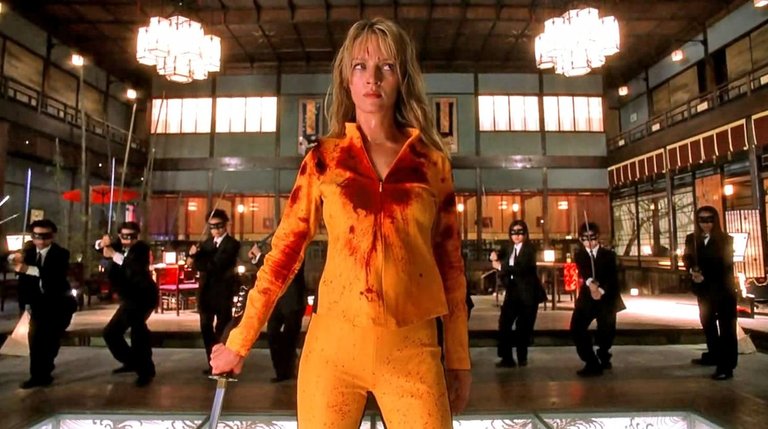
I like to see new movies. With so many productions coming out every year and with so many stories that I get to know from different countries and eras, one lifetime is not enough to see everything I want to see. However, I also like to revisit certain stories (on screen or on paper) and in the last few weeks I went back to see some of the movies that I've liked the most since the first time I saw them. One of them was Whiplash, and the other was this classic film by Quentin Tarantino: Kill Bill.
Me gusta ver películas nuevas. Con tantas producciones que salen todos los años y con tantas historias que voy conociendo de diferentes países y épocas, no alcanza una vida para ver todo lo que quiero ver. Sin embargo, también me gusta revisitar ciertas historias (en la pantalla o en el papel) y en las últimas semanas volví a ver algunas de las películas que más me han gustado desde la primera vez que las vi. Una de ellas fue Whiplash, y la otra fue este clásico del cine de Quentin Tarantino: Kill Bill.
While the story is separated into two volumes that were released in different years, it's a single film. Kill Bill Vol. 2 is not a sequel, it's the second part of the same story. For that reason my review today includes both of them, although it is true that each of them separately gives enough material to analyze and talk about for a long time. More than twenty years after the release of this film, I don't think there are many moviegoers on this platform who haven't seen or heard of this film, so this time the objective is not to present a story that is almost a classic film, but to pay tribute to a great film and mention certain elements that make it a cinematic gem. Kill Bill is a revenge story - and one of the best - that begins with the murder of Beatrix (Uma Thurman), one of the world's most lethal assassins, at the hands of her former squad mates commanded by the famous Bill of the title. However, Beatrix doesn't die and after being in a coma for four years she sets out to hunt down each of her murderers to take revenge for all the damage they did to her: she was killed along with her future husband and her closest friends. And besides, she was pregnant. Thus begins a hunt in which the victim becomes the predator and in which Tarantino opted for swords instead of the noisy firearms he had preferred in his previous stories. Of course, the industrial quantities of blood of his previous works are also guaranteed in this story.
Si bien la historia está separada en dos volúmenes que fueron estrenados en años diferentes, se trata de una única película. En mi opinión, Kill Bill Vol. 2 no es una secuela, es la segunda parte de una misma historia. Por esa razón mi reseña de hoy las incluye a las dos, si bien es cierto que cada una de ellas por separado da suficiente material para analizar y conversar durante mucho tiempo. A ya más de veinte años del estreno de esta película no creo que sean muchos los cinéfilos de esta plataforma que no hayan visto esta película o que no hayan oído de ella, así que en esta ocasión el objetivo no es dar a conocer una historia que ya casi es un clásico del cine sino homenajear una gran película y mencionar ciertos elementos que la convierten en una joyita cinematográfica. Kill Bill es una historia de venganza - y una de las mejores - que inicia con el asesinato de Beatrix (Uma Thurman), una de las asesinas más letales del mundo, a manos de sus ex compañeros de Escuadrón comandados por el famoso Bill del título. Sin embargo, Beatrix no muere y después de haber estado en coma durante cuatro años se dispone a perseguir a cada uno de sus asesinos para cobrar venganza por todo el daño que le hicieron: fue asesinada junto a su futuro esposo y sus amigas más cercanas. Y además, estaba embarazada. Comienza así una cacería en la que la víctima se convierte en la depredadora y en la que Tarantino optó por las espadas en lugar de las ruidosas armas de fuego que había preferido en sus historias anteriores. Eso sí: las cantidades industriales de sangre de sus predecesoras están garantizadas también en esta historia.
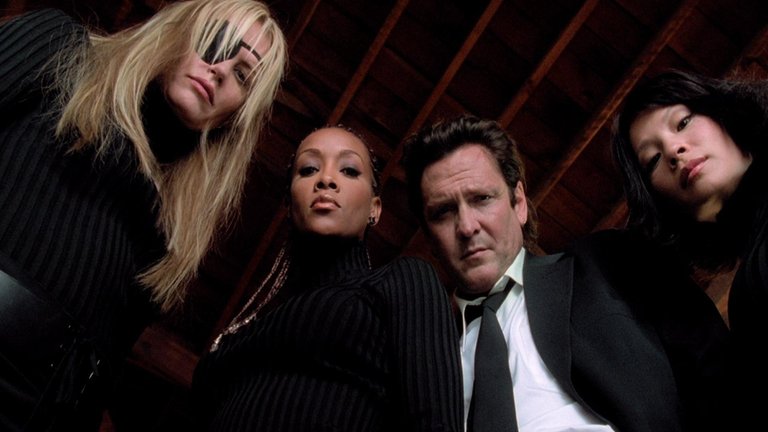
In essence, the story of Kill Bill is not very original. There are tens of thousands of stories of revenge and settling of scores, but there are several elements that helped turn this film into a cult classic within the filmography of the director and film lovers in general because it's very well made and because it stimulates different muscles of the body and mind of the most diehard moviegoers: acting, direction, photography, editing, soundtrack, screenplay, everything works in this fourth film by the director of Pulp Fiction.
En esencia, la historia de Kill Bill no es muy original. Existen decenas de miles de historias de venganza y ajustes de cuentas, pero hay varios elementos que ayudaron a convertir esta película en un clásico de culto dentro de la filmografía del director y de los amantes del cine en general porque está muy bien hecha y porque estimula diferentes músculos del cuerpo y la mente de los cinéfilos más acérrimos: actuaciones, dirección, fotografía, montaje, soundtrack, guion, todo funciona en esta cuarta película del director de Pulp Fiction.
It's true that the script has some moments that lack the brilliance of other Tarantino's stories and in general lacks the sharp and witty phrases that the director used in his previous stories, but the non-linear narration is a very well executed resource to tell us little by little all that past that we do not know at the beginning; past that is revisited again and again expanding at every opportunity the scope of the narrated events. On the other hand, the script is full of Chinese boxes: small stories within other stories, some merely anecdotal, but others bordering on the legendary and mythical. Then there's the issue of having mixed and paid homage to different film formats and genres. Kill Bill moves between modern Hollywood, old Kung Fu movies, westerns, Japanese anime, thrillers, uses full color, black and white, neon lights, exterior lighting, impressive fight choreography. Added to this is Tarantino's exquisite direction and one of the most memorable soundtracks of all time composed by a great, Ennio Morricone, who manages to combine Spanish guitars, whistles, notes of the old west and compose melodies that stay fixed in your mind for years. Not least, of course, are the performances of an all-star cast: Uma Thurman, David Carradine, Vivica Fox, Daryl Hannah, Lucy Liu, the recently deceased Michael Madsen, Julie Dreyfus, Chiaki Kuriyama and Gordon Liu, among others.
Es cierto que el guion tiene algunos momentos que carecen de la brillantez de otras historias de Tarantino y en general faltan las frases punzantes e ingeniosas que el director empleó en sus historias anteriores, pero la narración no lineal es un recurso muy bien ejecutado para irnos contando de a poco todo ese pasado que desconocemos al inicio; pasado que se revisita una y otra vez ampliando en cada oportunidad el alcance de los hechos narrados. Por otro lado, el guion está repleto de cajas chinas: pequeñas historias dentro de otras historia, algunas meramente anecdóticas, pero otras rozando lo legendario y el mito. Luego está el tema de haber mezclado y homenajeado diferentes formatos y géneros cinematográficos. Kill Bill se mueve entre el Hollywood moderno, las películas viejas de Kung Fu, el western, el anime japonés, los thrillers, utiliza el full color, el blanco y negro, las luces de neón, iluminaciones exteriores, impresionantes coreografías de lucha. A ello se suma la exquisita dirección de Tarantino y una de las bandas sonoras más memorables de todos los tiempos compuesta por un grande, Ennio Morricone, que logra combinar guitarras españolas, silbidos, notas del viejo oeste y componer melodías que se quedan fijas en tu mente durante años. Y no menos importante, por supuesto, están las actuaciones de un reparto de lujo: Uma Thurman, David Carradine, Vivica Fox, Daryl Hannah, Lucy Liu, el recientemente fallecido Michael Madsen, Julie Dreyfus, Chiaki Kuriyama y Gordon Liu, entre otros.
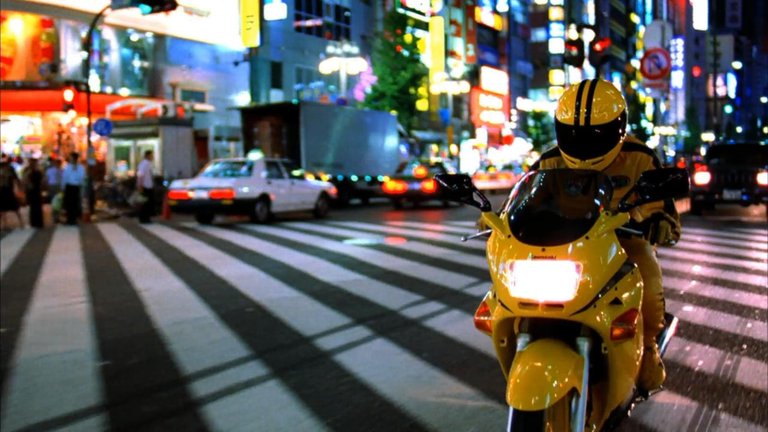
There are very striking and visually striking moments in the story, such as the confrontation between Beatrix and the Crazy 88, or some more tiernal scenes; there are plot twists, drama, humor, sarcasm, but also deep reflections based on simple facts, such as Bill's analysis of the mythology surrounding Superman, which is worth revisiting now that the new Man of Steel movie has just been released.
Hay momentos muy llamativos y visualmente impactantes de la historia como el enfrentamiento entre Beatrix y los Crazy 88, o algunas escenas más tiernas; hay plot twists, drama, humor, sarcasmo, pero también reflexiones profundas a partir de hechos simples, como ese análisis que hace Bill sobre la mitología alrededor de Superman, a la que valdría la pena darle una revisada ahora que se acaba de estrenar la nueva película sobre el hombre de acero.
More than an excellent director, I've always thought Tarantino's most brilliant facet is his work as a screenwriter, and I have to acknowledge some validity in the criticisms of his Kill Bill script; it's not as solid as that of his other gem Inglourious Basterds, for example, but I think those flaws are compensated for by other things. Beatrix's Revenge, inspired by a manga and heavily influenced by Toshiya Fujita's Lady Snowblood, is one of the best, most violent, entertaining and dynamic revenge stories out there. In that list we could easily include other great stories like Oldboy or Man of Fire, for example. Kill Bill has action, violence, motives, secrets... it has that taste that comes from crossing tasks off a to-do list and above all it is an impressive technical and visual display. There are scenes, sequences, scenarios, that are of tremendous aesthetic quality with which the story is reinforced not only in the background (i.e., in the story) but also in the form (i.e., the narrative framework). I have never been able to decide whether I like Kill Bill or Inglourious Basterds better, because although the latter seems to be better made, the other has more footage to enjoy: almost 250 minutes long. You who have seen these and other Quentin Tarantino stories, which is your favorite and why, and which is your favorite revenge movie? I'll read you in the comments.
Más que un excelente director, siempre he pensado que la faceta más brillante de Tarantino es su trabajo como guionista y tengo que reconocer algo de validez en las críticas que le han hecho sobre el guion de Kill Bill; no es tan sólido como el de su otra joya Inglourious Basterds, por ejemplo, pero creo que esas fallas son compensadas con otras cosas. La venganza de Beatrix, inspirada en un manga y con mucha influencia de Lady Snowblood de Toshiya Fujita, es una de las mejores, más violentas, entretenidas y dinámicas historias de venganza que existen. En esa lista fácilmente podríamos incluir otras grandes historias como Oldboy o Man of Fire, por ejemplo. Kill Bill tiene acción, violencia, motivos, secretos... tiene ese gusto que da ir tachando tareas de una lista de pendientes y sobre todo es un despliegue técnico y visual impresionante. Hay escenas, secuencias, escenarios, que son de una calidad estética tremenda con lo que la historia se refuerza no sólo en el fondo (es decir, en la historia) sino también en la forma (es decir, el marco narrativo). Nunca he podido decidir si me gusta más Kill Bill o Inglourious Basterds, porque aunque está última pareciera estar mejor hecha, la otra tiene más metraje para disfrutar: casi 250 minutos de duración. Ustedes que han visto estas y otras historias de Quentin Tarantino, ¿cuál es su favorita y por qué? ¿y cuál es su película de venganza favorita? Los leo en los comentarios.
Reviewed by | Reseñado por @cristiancaicedo
Other posts that may interest you | Otros posts que pueden interesarte:
 |
|---|
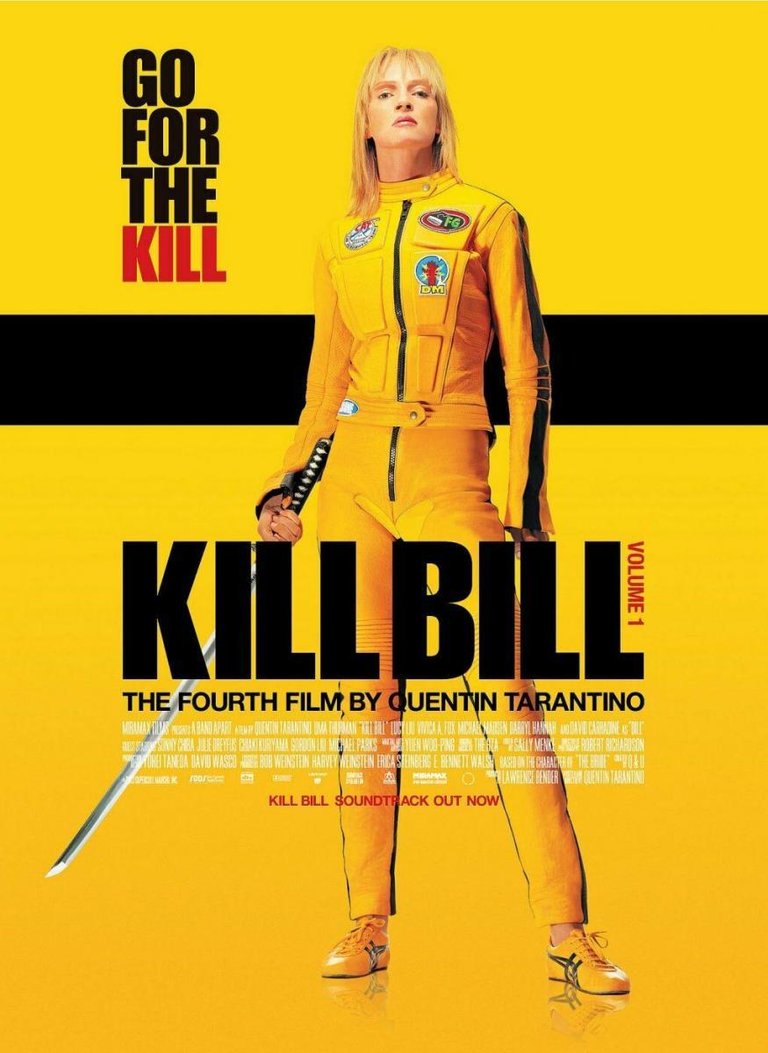
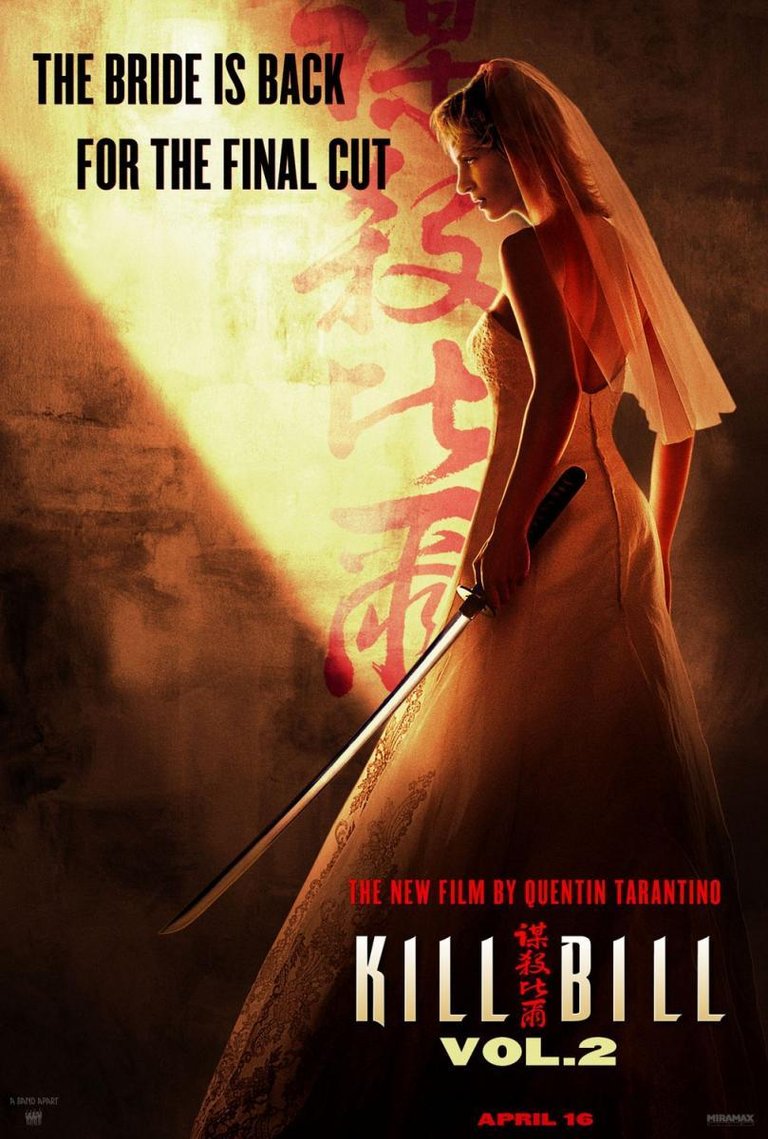

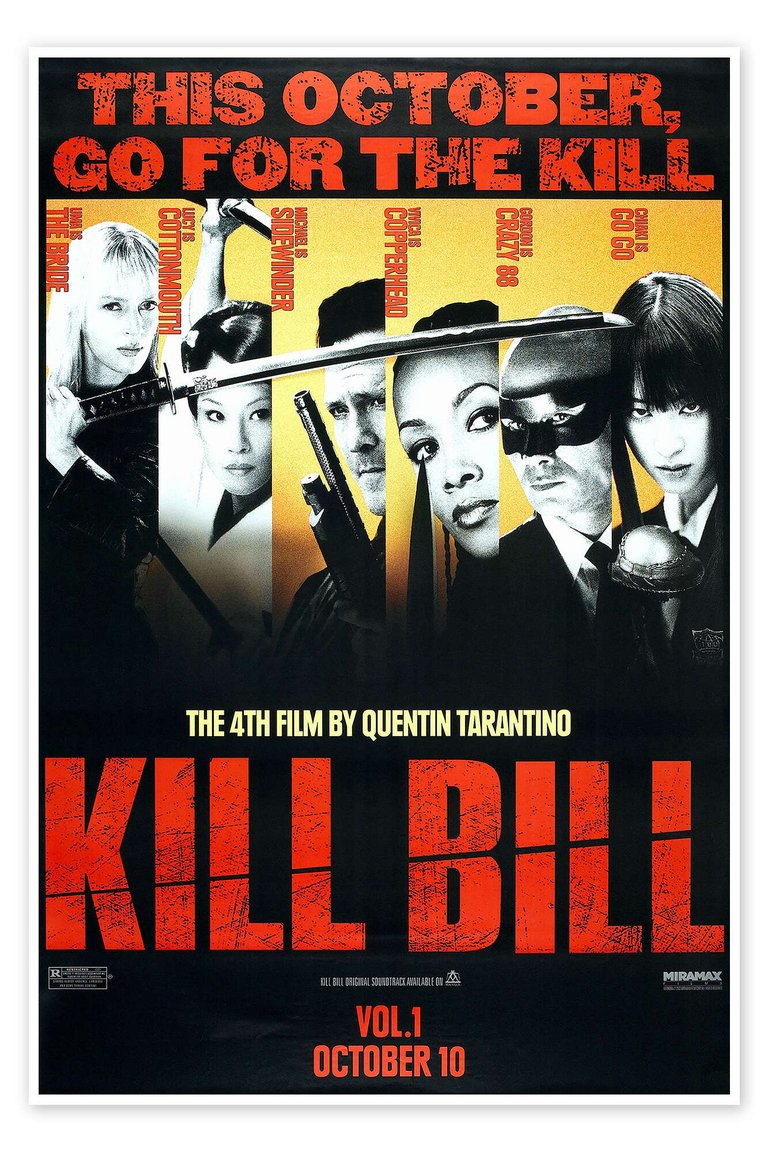
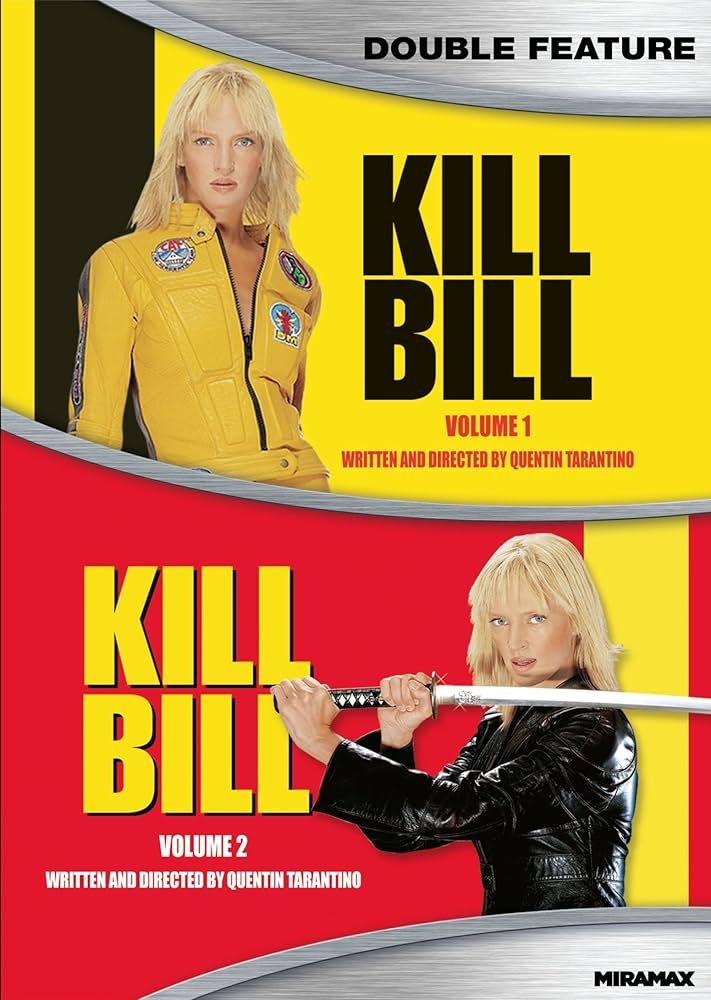
Congratulations @cristiancaicedo! You have completed the following achievement on the Hive blockchain And have been rewarded with New badge(s)
Your next target is to reach 4500 comments.
You can view your badges on your board and compare yourself to others in the Ranking
If you no longer want to receive notifications, reply to this comment with the word
STOPVolver a filmes que marcaron hito en la contemporaneidad me parece fundamental. Gracias, @cristiancaicedo.
That's a Tarantino's masterpiece, I would say.